Spiders are a common source of fear and discomfort. Despite this, they hold honored roles in many cultural traditions around the world. The intricate beauty of spiders’ webs represent the incredible wonders that nature can produce. If these eight-legged creepy crawlies strike fear into your heart then maybe it’s time to take a closer look at the spider. You may just discover that these creatures are much much more than the spooky monsters that we humans sometimes judge them to be.
Table of contents
Spider symbolism and meaning
The spider is the ultimate symbol of creativity. The delicate and precise patterns that spiders produce with their webs, which tend to be extremely strong and well-constructed with tensile strength that rivals steel, make these arachnids the craftsmen of the animal kingdom. (1) The spider represents skill, patience, precision, artisans, and artists.
The spiraling web of the spider often includes repeating patterns that converge at a single point. Some traditions see the spiderweb as a microcosm representing the universe itself. Spiders can represent higher knowledge, the converging and diverging paths that lie ahead in the future, and the ability to shape or predict future events.
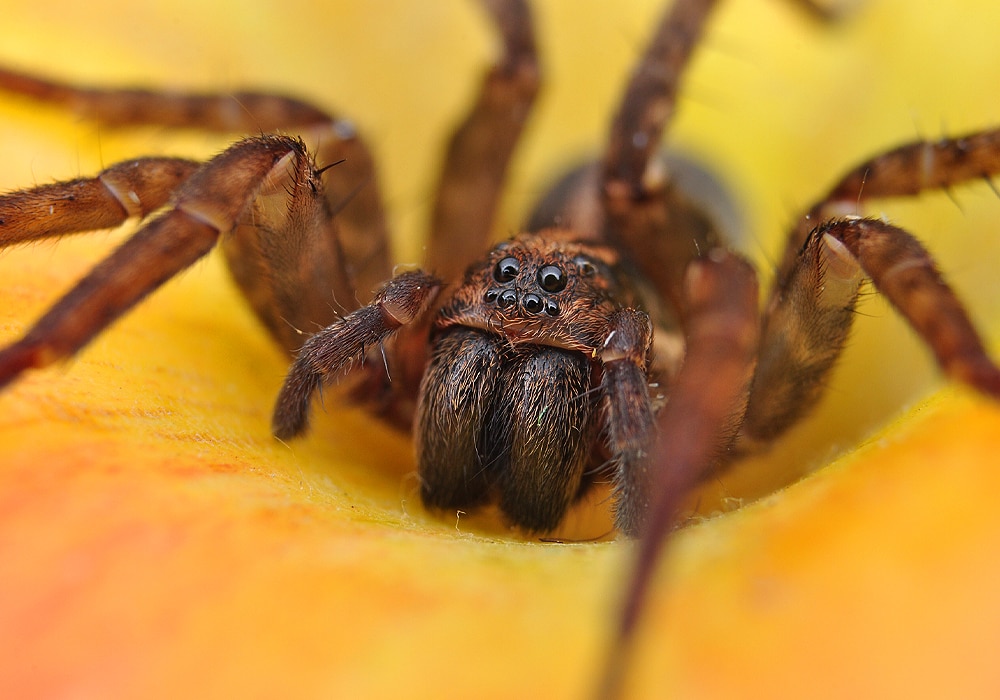
Spider webs are also brutally effective traps that capture unsuspecting bugs, small mammals, fish, lizards, and even birds depending upon the species. A spider’s strategy of constructing traps and lying in wait associates these arachnids with deception, duplicitousness, malice, danger, cunning, and patience. The additional fact that spiders carry venom that can be deadly even to much larger animals like humans means that spiders are also connected with death, disease, and suffering. (2)
Spiders are also often connected with femininity. Female spiders are often much larger than males and may even destroy males of their own species. The term for a femme fatale, the infamous “black widow” owes itself to the behavior of the venomous spider which shares this name.
Spiders are very impactful animals which have influenced human thoughts and imaginations for quite a long time. Although many associations are negative and born out of fear, spiders may also represent the home, cooperation, wisdom, and efficiency. (3) We may fear spiders, but in most of the world a spider in one’s home is far more likely to be harmless than dangerous and can be helpful for dealing with unwanted pest insects. Mosquitoes, for example, kill many more people each year, by spreading harmful diseases, than spiders and thanks to little indoor spiders that largely stay out of sight, homes may have much fewer mosquitoes than they otherwise would. Certain common cellar spiders even prey upon more dangerous venomous spiders, keeping your home safe as long as you can stand living with them. (4)
Spider Native American symbolism
Spiders are extremely common in Native American cultures and appear in a number of myths and traditions. Across Native traditions, spiders usually roughly occupy one of two basic archetypes: a wise grandmother goddess figure or a cunning trickster figure which may be good or bad depending on the story. (5)
The Hopi people are one of several cultures which credit Spider Grandmother with the creation of humans. Spider Grandmother is a benevolent and wise creature who has existed since the beginning of time. She is also associated with the sacred art of weaving. (6)
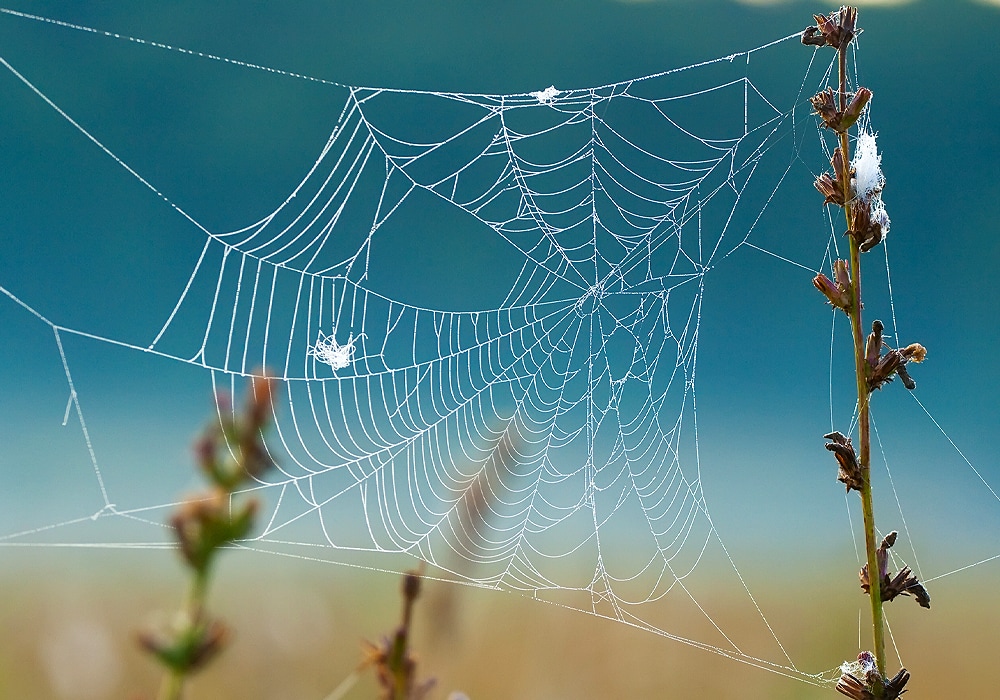
For the Lakota, Dakota, and Nakota Sioux tribes, the spider is represented by a trickster figure named “Iktomi.” Iktomi is a sort of buffoonish character who often acts foolishly in stories and receives a lesson for his misbehaviors. Iktomi is one of many Native American trickster spider characters. (7)(8)
The importance of the spider as a Native American mythological character cannot be overstated. In many stories, the spider guides a hero through difficult times. Some Native cosmologies see the spider as an ancient creator with sacred knowledge of the cosmos. Many myths contend that the spider once lived in the sky and sent webs down to earth to interact with the world. The dreamcatcher, which is meant to trap bad dreams, is one of many woven crafts that is strongly associated with spiders. Thus, spiders are also connected with dreams and the unconscious. (9)
Spider Eastern Symbolism
Spiders are common characters in Japanese myths. “Jorogumo,” for example, is a fearsome Japanese “yokai,” or spirit, which takes the form of a woman to lure in unsuspecting men. The Jorogumo is said to come into existence when an orb-weaver spider becomes four hundred years old. Although they appear as young women, Jorogumo are dangerous monsters that bind up their foolish prey and consume them at their leisure. Curiously, some traditions see Jorogumo as spirits connected with waterfalls which use their spider abilities to rescue people from drowning. (10)
The Ainu people of Japan revere a goddess called the “Yushkep Kamuy.” Yushkep Kamuy is a spider goddess which is associated with marriage, femininity, and childbirth. She is sometimes called the “long-fingered woman.” Yushkep Kamuy is thought to help women during childbirth by using her long fingers to deliver the child.
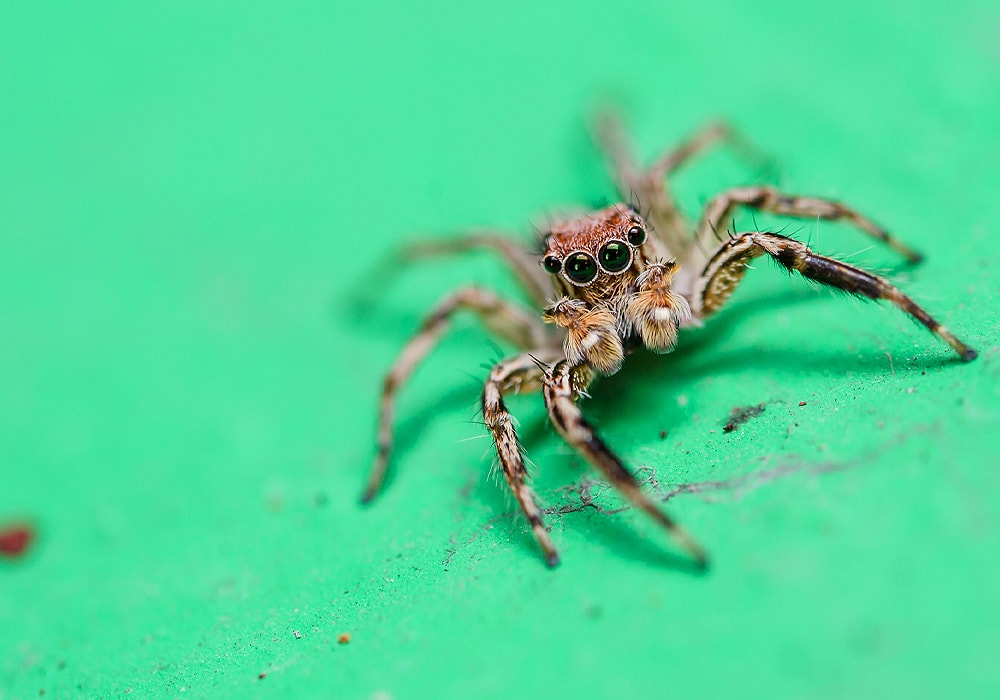
In Chinese traditions, spiders are called “happy insects” and are thought to bring joy and good fortune down from heaven. Spider symbols are often used to represent or manifest good fortune. (11)
In Journey to the West, an important piece of sixteenth century Chinese literature, the heroic Monkey King comes face to face with seven terrifying Spider Demons which take the forms of young women. At first, the Monkey King does not wish to fight these beauties, but when he sees their evil deeds he slays them one by one. (12)
Spider Christianity symbolism
The spider’s typical Christian meaning is that of death and deception. The way in which spiders build traps for unsuspecting prey is sometimes used as an allegory for the silver-tongued trickery of Satan and the deceptive temptations of sin.
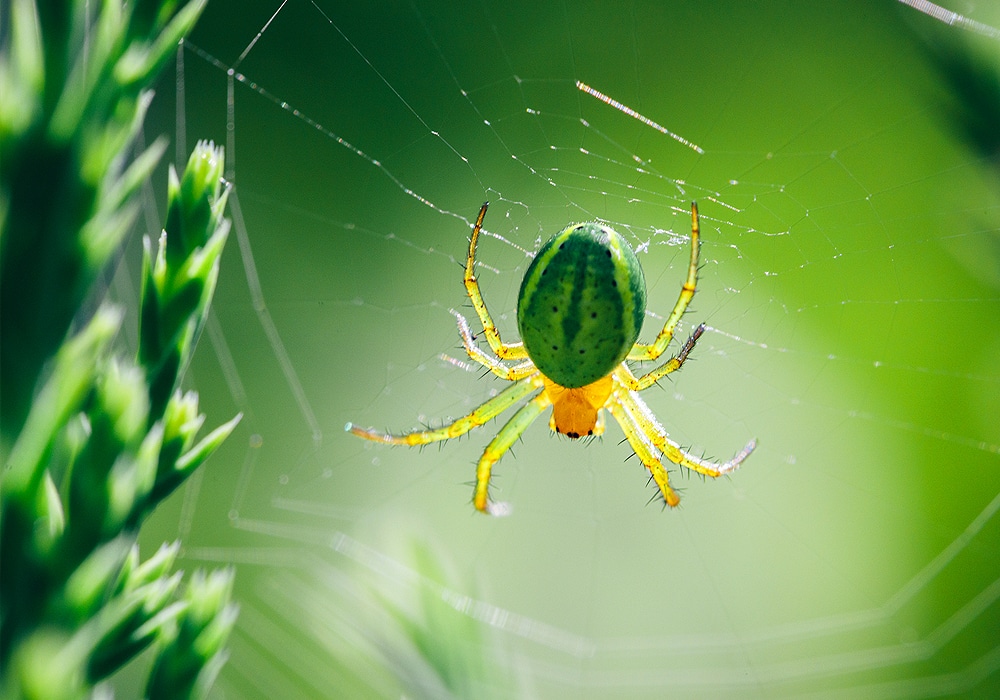
However, the spider’s superior craftsmanship and excellent work ethic often redeems this creature in Christian symbolism. Furthermore, the intricate precision of spiderwebs is sometimes seen as evidence of the idea that all of nature reflects an intelligent design by a genius creator.
Spider Celtic symbolism
Celtic cultures typically attached positive meanings to the spider. Its appearance was seen as beneficial and it was considered bad luck to harm one.
In ancient Welsh literature, the spider can be connected with Arianrhod, a figure associated with femininity and with weaving. Arianrhod is the mother of the Welsh hero Lleu Llaw Gyffes. She is a crafty woman who is vindictive and malicious against those who she perceives as slighting or shaming her. (13)
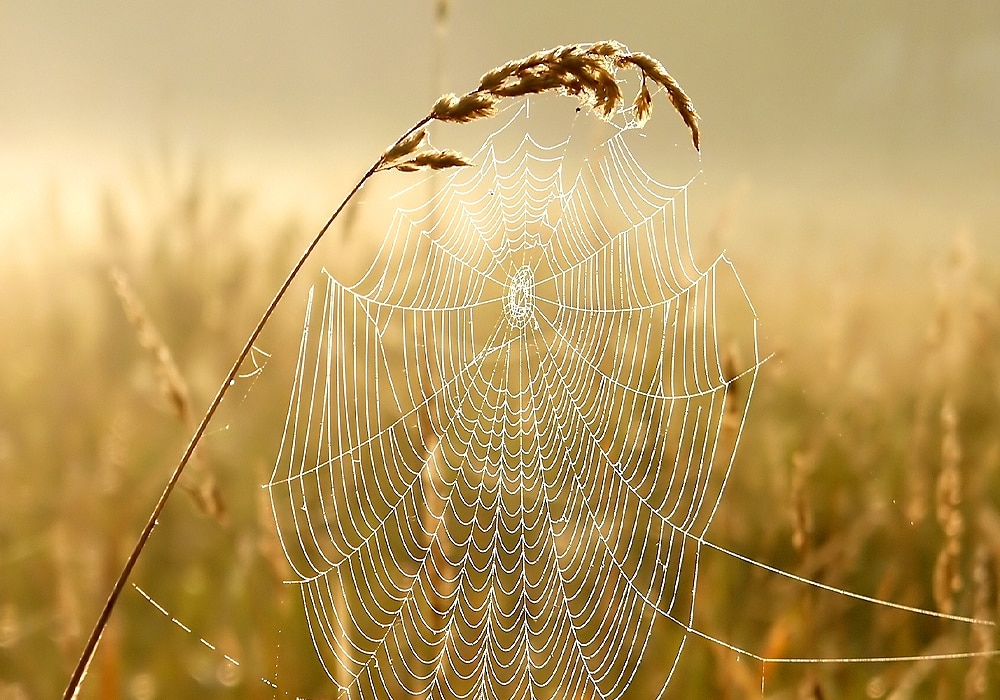
It is worth mentioning that these days spiders are commonly connected with Halloween festivities. Halloween derives from the important Celtic festival of Samhain which was heavily focused on transitions and liminal spaces.
Spider Medicine
Spider medicine represents the weaving of the past, present, and future. Although spiders like the tarantula invoke fear in many people, they are actually fragile beings which break when dropped from the hand.
Spider medicine brings higher knowledge, spiritual enlightenment, and universal understanding. The complex web of the spider demonstrates the endless branching paths of life and the way each one of us is suspended in the balance.
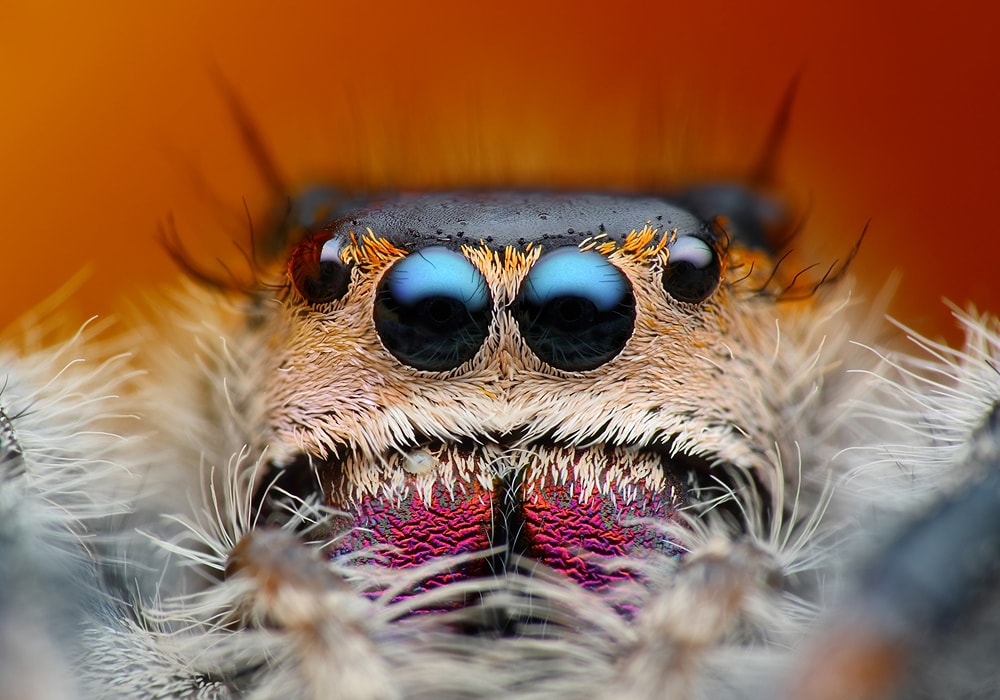
Spider medicine is associated with creativity and craftsmanship. For artists, the spider reminds you to prepare carefully and follow through on your plans. (14)
Spider in dreams
Dreaming of spiders indicates one’s most deeply held fears. Spiders appear in dreams when fears are not being properly addressed or managed. Instead of confronting your actual fears in real life, you are facing one of humanity’s primal fears in the realm of dreams.
One of the meanings a spider dream can hold is an anxiety about being lied to. The unknown is scary and other humans hearts are very difficult to know and predict with absolute confidence. So, we sometimes dream of spiders when we feel uncertain of the motives of our peers.
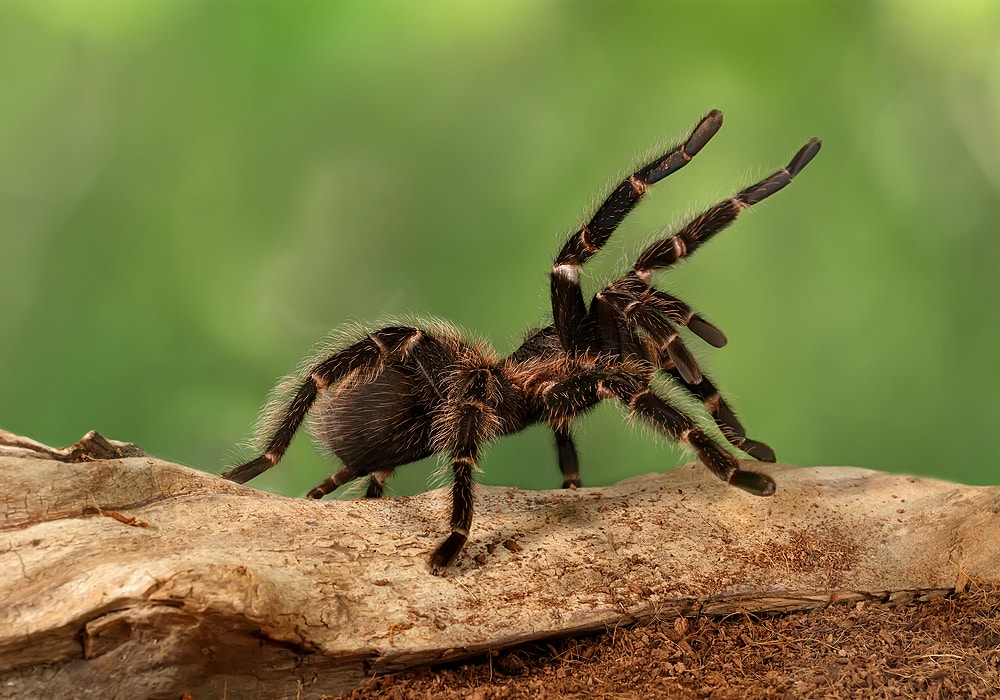
Dreaming of a spiderweb indicates the feeling of being trapped. Have you felt lately like the harder you work and struggle the more difficult things become? A spiderweb dream may mean that you are stuck in a behavioral loop which needs to be broken in order to free your mind and spirit. (15)
Spider encounters and omens
Spiders are commonly found in human dwellings and common urban legends suggest that we are never very farm from one of these eight-legged critters. So, encountering a spider will not always mean something special. Spiders just like to make their homes near humans sometimes.
If an encounter with a spider feels meaningful, though, then you might consider whether you feel entirely safe in your surroundings. Spiders typically try to find dark, dry, hidden spots to build their webs and make themselves cozy. Encountering a spider may mean that you feel vulnerable or exposed in your current circumstances.
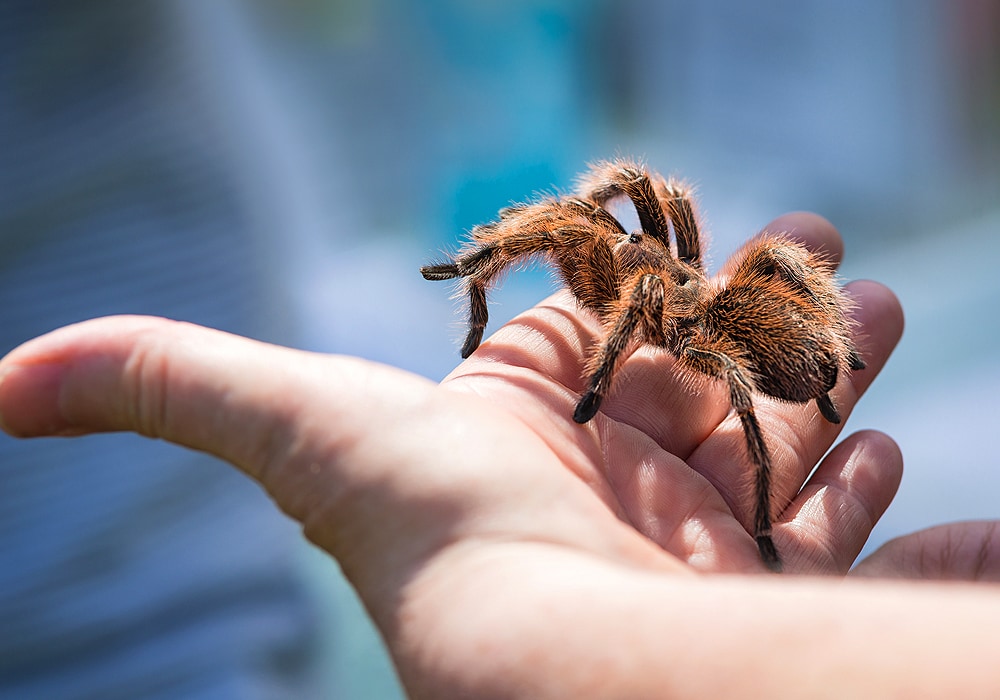
Encountering a spider as it spins its web represents a deliberate effort. Consider this a sign to take pride in your work, whatever it may be, and hone your skills whenever possible. (16)
Spider mythology and folklore
In many cultures, the spider is looked upon as a symbol of heroic ‘mother.’ Spiderwebs also appear to symbolize both destiny and mortality.
Greek mythology includes a tale in which the goddess Athena is troubled by a woman named Arachne. In some versions of the story, Arachne bragged that she was a superior weaver to the crafting goddess, so Athena transformed her into a spider. In other versions, Arachne and Athena had a weaving contest. Arachne wove a tapestry that offended Athena by depicting the gods as lecherous and sinful. So, Athena destroyed the tapestry. At this point she either transformed Arachne into a spider or Arachne attempted suicide by hanging and Athena took pity upon her and changed the rope into a spider’s web and Arachne into a spider. In any case, Arachne was cursed to weave forevermore. (17)
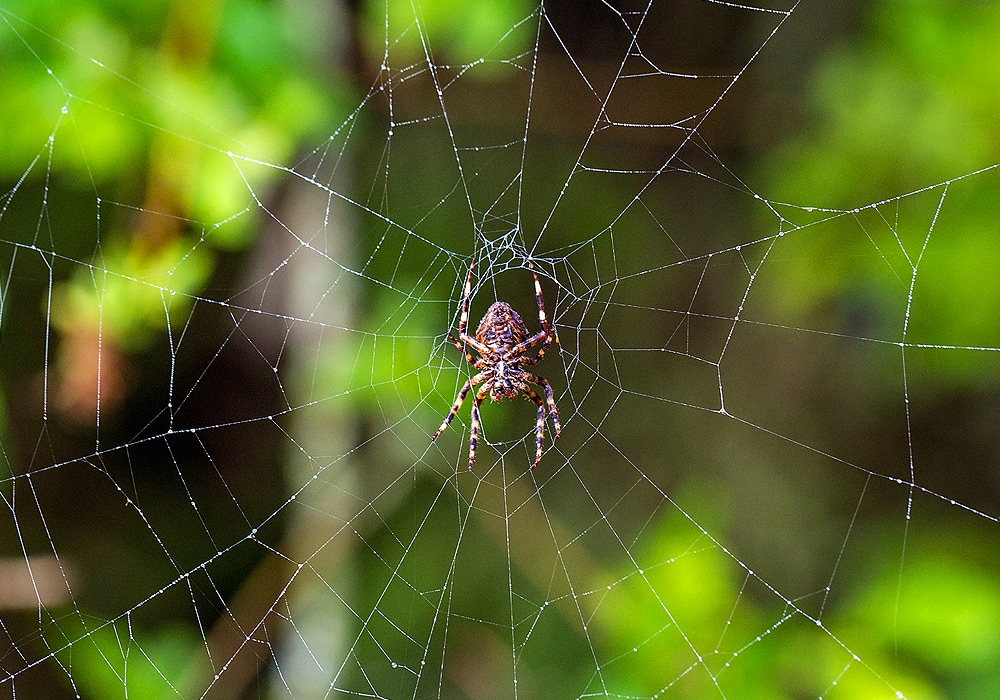
The spider god, Anansi, is one of the most important figures in African mythology. Anansi is a trickster deity who is associated with storytelling and cleverness. (18)(19)
Spider spirit animal
If the spider is your spirit animal then you are likely intelligent, introverted, careful, and inclined towards spiritual exploration. People with the spider spirit animal tend to be creative types who enjoy keeping to themselves because they crave a certain measure of control over their environment.
The spider spirit animal is the ultimate homebody, preferring to feel safe rather than undertake wild adventures. For entertainment, people with the spider spirit animal occupy themselves by creating art and telling stories. (20)
Although they do not branch out often socially, people with the spider spirit animal do tend to be very openminded. Because they are so imaginative, they tend to be very skilled at seeing other perspectives and are great at listening and empathizing with others.
The spider spirit animal is a keen observer which watches events unfold and learns from the mistakes and triumphs of others.
Spider totem animal
The spider totem is associated with femininity, motherhood, and the home. The spider’s creative tendencies are often connected with the female ability to create life. This is furthered by the fact that female spiders are often much larger and longer-lived than their male counterparts.
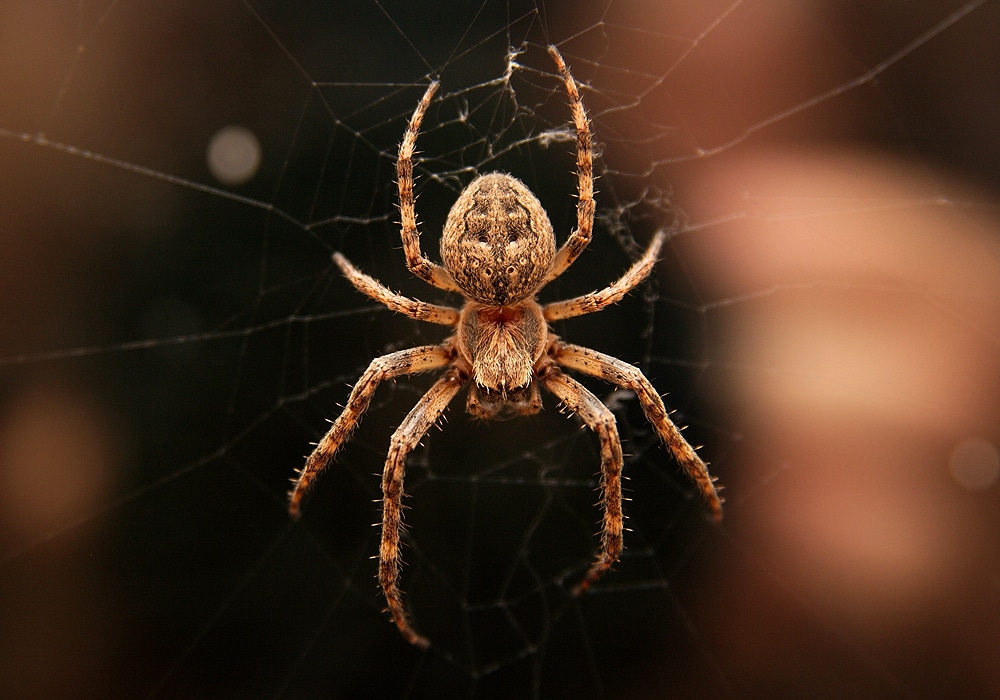
The spider totem is helpful for creating a safe home in which creative energies can be focused, nourished, and honed. This is a valuable totem to call upon during times when feminine energy is required (21)
The spider totem also connects with healing processes. Spider venom is used to treat a variety of ailments ranging from pain, to potential experimental treatments for epilepsy and cancer. Spiders may be frightening, but their destructive venom when channeled properly can be miraculous. (22)
Spider power animal
The spider power animal is associated with the unconscious. Often representing our most primal unconscious fears, spiders connect to the unconscious through the complex “web” of human psychology. Native American cultures often connect spiders with dreams and dreaming.
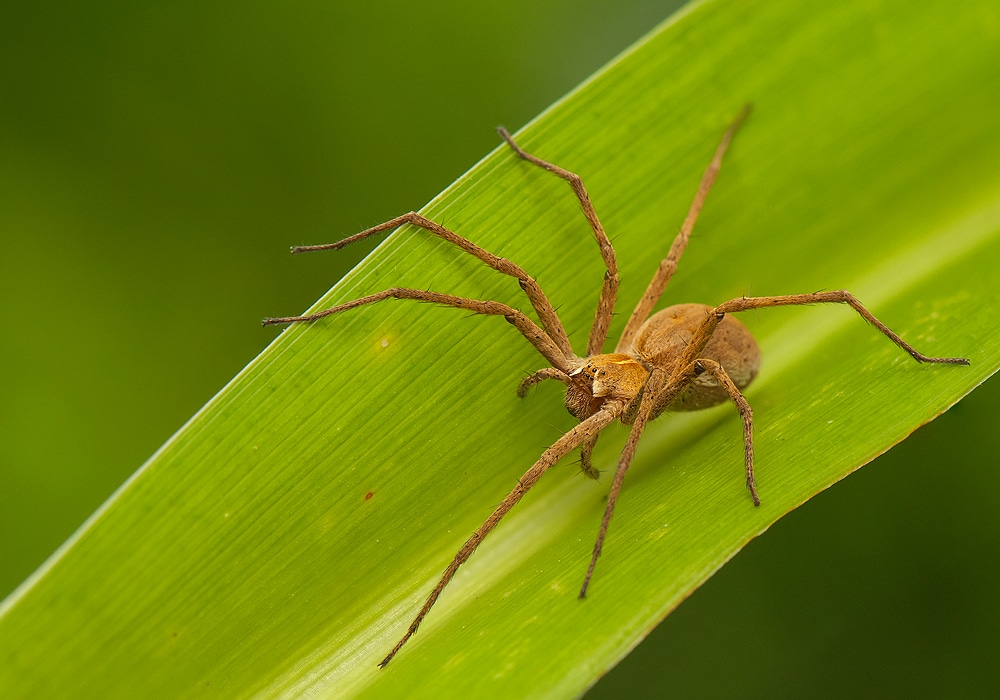
The spider power animal allows you to dig deep and discover your true self. Confronting subconscious problems can bring serious catharsis to the conscious mind. Furthermore, through dreams and introspection, the spider power animal helps you to grow, heal, and achieve your true potential. (23)
Spider tattoo meaning
Spider tattoos are sometimes indicative of a prison stay or a gang affiliation. In the case of spiders, especially, we recommend researching your tattoo thoroughly just to ensure that you don’t accidentally convey the wrong message.
A spider tattoo may represent fear or darkness. People who follow a goth lifestyle or stylistic motif sometimes choose spider tattoos to represent this.

A spider tattoo may also signify femininity, creativity, or the future. Spider tattoos take on different meanings depending on cultural contexts. For a person of Native American descent, a spider tattoo may represent the wisdom of Spider Grandmother or the realm of dreams.
Conclusion
Spiders make us uncomfortable out of instinct. Their legs, hairs, eyes, and fangs fill many people with a sense of panic and dread. Looking a bit closer, though, it becomes clear that spiders are rarely a major danger to us, though it is still unwise to go messing with them needlessly, and they can convey quite a lot of fascinating wisdom and lessons. Across cultures, spiders are almost universally connected with storytelling, craftsmanship, and cleverness. Observing the ornate webs that even the most common spiders weave, it is not difficult to see why that is.
Related:
